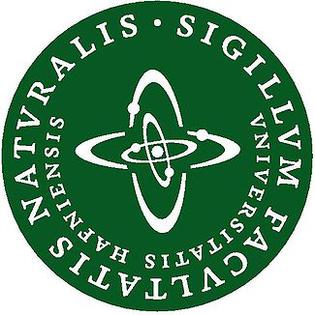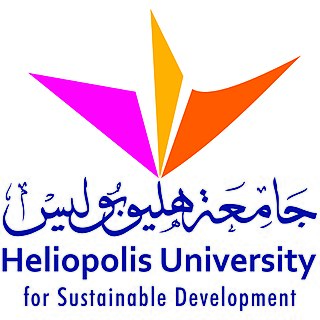
The Swedish University of Agricultural Sciences, or Swedish Agricultural University (SLU) is a university in Sweden. Although its head office is located in Ultuna, Uppsala, the university has several campuses in different parts of Sweden, the other main facilities being Alnarp in Lomma Municipality, Skara, and Umeå. Unlike other state-owned universities in Sweden, it is funded through the budget for the Ministry of Enterprise and Innovation. The university was co-founder of the Euroleague for Life Sciences (ELLS) which was established in 2001.

The Faculty of Science at the University of Copenhagen houses 12 departments, including the Natural History Museum of Denmark. The faculty also encompasses several national and international research centres, and has a number of field stations in Denmark and Greenland, among them the university's Arctic Station in central West Greenland. The faculty's administration is housed at the university's Frederiksberg Campus.

Kasetsart University, commonly known and referred to as Kaset or KU, is a public research university in Bangkok, Thailand. It is the largest university in Thailand. It was Thailand's first agricultural university and Thailand's third oldest university. It was established on 2 February 1943 to promote subjects related to agricultural science. Since then, Kasetsart University has expanded its subject areas to cover life sciences, science, engineering, social sciences, and humanities. Kasetsart University's main campus is in Bangkhen, northern Bangkok, with several other campuses throughout Thailand.

The Warsaw University of Life Sciences is the largest agricultural university in Poland, established in 1816 in Warsaw. It employs over 2,600 staff including over 1,200 academic educators. The University is since 2005 a member of the Euroleague for Life Sciences (ELLS) which was established in 2001. The SGGW offers some 37 different fields of study, 13 faculties in Agricultural Sciences, Economic Sciences, Humanities, Technical as well as Life Sciences. Its Agriculture and Forestry and Veterinary Medicine have been ranked as top 41 and 51-70 in the world on QS top university ranking 2023.

The University of Natural Resources and Life Sciences, Vienna, or simply BOKU, founded in 1872, is an education and research centre for renewable resources in Vienna, Austria. BOKU combines expertise in the fields of natural sciences, engineering and biotechnology as well as social and economic sciences. In research and teaching, it focuses on

Czech University of Life Sciences Prague is a university of agricultural education and research in Prague, the Czech Republic, established in 1906.

The University of Agricultural Sciences and Veterinary Medicine of Cluj-Napoca (USAMVCN) is a university in Cluj-Napoca, Romania. With around 6,000 students, the university offers 21 undergraduate programs; all are available in Romanian, 2 in French and 1 in English. Additionally, the university offers 23 Master programs.

The University of Florida Institute of Food and Agricultural Sciences (UF/IFAS) is a teaching, research and Extension scientific organization focused on agriculture and natural resources. It is a partnership of federal, state, and county governments that includes an Extension office in each of Florida's 67 counties, 12 off-campus research and education centers, five demonstration units, the University of Florida College of Agricultural and Life Sciences, three 4-H camps, portions of the UF College of Veterinary Medicine, the Florida Sea Grant program, the Emerging Pathogens Institute, the UF Water Institute and the UF Genetics Institute.

Heliopolis University is a non-profit university in Egypt with the mission of sustainable development. In Fall 2018, Heliopolis University had around 1,700 students in five faculties.

The Tokyo University of Agriculture and Technology commonly known as TUAT is a Japanese national university headquartered in Fuchū, Tokyo. This university focuses on the study of agriculture and engineering.

The University of Hohenheim is a campus university located in the south of Stuttgart, Germany. Founded in 1818, it is Stuttgart's oldest university. Its primary areas of specialisation had traditionally been agricultural and natural sciences. Today, however, the majority of its students are enrolled in one of the many study programs offered by the faculty of business, economics and social sciences. The faculty has regularly been ranked among the best in the country, making the University of Hohenheim one of Germany's top-tier universities in these fields. The university maintains academic alliances with a number of partner universities and is involved in numerous joint research projects.
Torsten Müller is an agricultural scientist at the University of Hohenheim. He is chairman of the examination and admissions board of the European master's degree Course "Organic Agriculture and Food Systems" and Dean of Education of the Agricultural Science Faculty in Hohenheim.
Manfred Gustav Raupp is a German agricultural scientist and economist. He is honorary professor of the Czech University of Life Sciences Prague active in the Department of Agricultural Research and International Management. He is a member of the management team of the EU research project Biofector as a specialist in agricultural- and biological-informatics, responsible for training and information.
Ralf Thomas Voegele is a German Biologist, specialising in Microbiology. He is Professor of Phytopathology and Dean of the Agricultural Science Faculty at the University of Hohenheim.

Pavel Tlustoš is a Czech agricultural chemist. From 2000-10 he was Vice Dean of the Faculty of Agricultural Biology, Food and Natural Resources of the Czech University of Life Sciences Prague (CULS), and 2010-February 2018 he was the Dean of the faculty. Since March 2018 he is again Vice Dean and responsible for international relations the faculty.

Martin Hubert Gerzabek is an Austrian ecologist and soil scientist. He is a professor of ecotoxicology and isotope application and was rector of BOKU, the University of Natural Resources and Life Sciences, Vienna from 2010 to 2018.
Markus Weinmann is an agricultural scientist specialising in the area of Plant Physiology at the University of Hohenheim, and ranks as one of the pioneers of Bioeffector-Research aimed at improving plant growth, vitality and disease resistance. He is also coordinator of field experiments in the EU-Biofector-Project.

The Lilongwe University of Agriculture and Natural Resources (LUANAR) is a university outside Lilongwe, Malawi. It was formed in 2011 by a merger between Bunda College of Agriculture of the University of Malawi and Natural Resources College (NRC).












